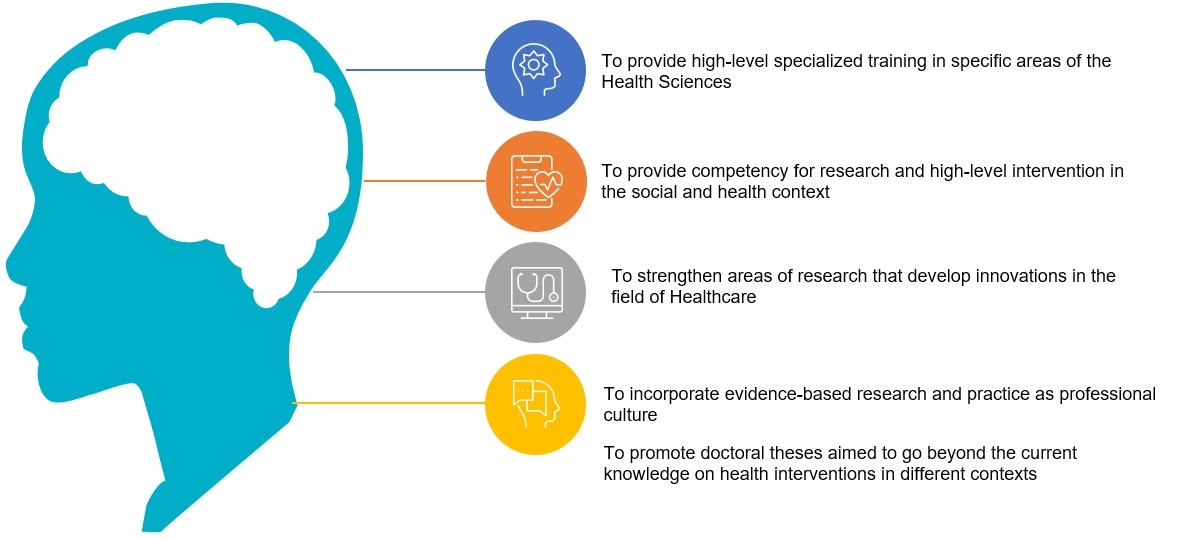Objectives and competencies
The main objective of the Doctoral Program in Health Sciences is to allow the completion of doctoral theses in the Health area, with a translational perspective that integrates basic and applied research and that guarantees the achievement of results that allow a better comprehensive care of the citizens' health.

COMPETENCIES
1. That students must have and understand such domain that implies knowledge from the forefront of their field of study.
2. Students must know how to apply their knowledge to their work in a professional manner and possess the skills that are usually demonstrated through the elaboration and defense of arguments and the resolution of problems within their area of study.
3. Students must have the ability to gather and interpret relevant data (within their area of study) to make judgments that include a reflection on relevant issues of a social, scientific or ethical nature.
4. Students must be able to transmit information, ideas, problems and solutions to both a specialized and non-specialized public.
5. Students must develope those learning skills necessary to undertake further studies with a high degree of autonomy.
6. Students must incorporate self-learning to continue progressing, as an instrument of development, innovation and professional responsibility through continuous training
7. Students must contribute to the knowledge and development of human rights, democratic principles, the principles of equality between women and men, solidarity, environmental protection, universal accessibility and design for all and the promotion of a culture of peace.
If there is a distinctive feature of this Program, it is the conjunction of multiple quantitative and qualitative research methods and multidisciplinary approaches along its different topics, which make it an ideal niche to acquire research skills in health and obtain scientific training that allows both the development of an academic and research career, as well as the incorporation of research in clinical practice as one more element of professional development and facilitation of the transfer of knowledge to society, or of planning and decision-making in health and socio-health care. It is important to note that throughout the doctoral training the approach is multidisciplinary and research can be carried out in multiple socio-health and educational contexts.
The researchers of the Program offer topics for research that range from those more classic quantitative methods, whether with observational or experimental designs, to studies with qualitative methods, or even mixed methods. In addition, several research groups of the Program have extensive experience in the development of systematic reviews and quantitative and qualitative scientific synthesis methods, as well as in the development and implementation of Clinical Practice Guidelines. Additionally, the incorporation of new technologies, especially in the field of musculoskeletal research and occupational health, has been an important revulsive in the orientation of the research of these groups.




